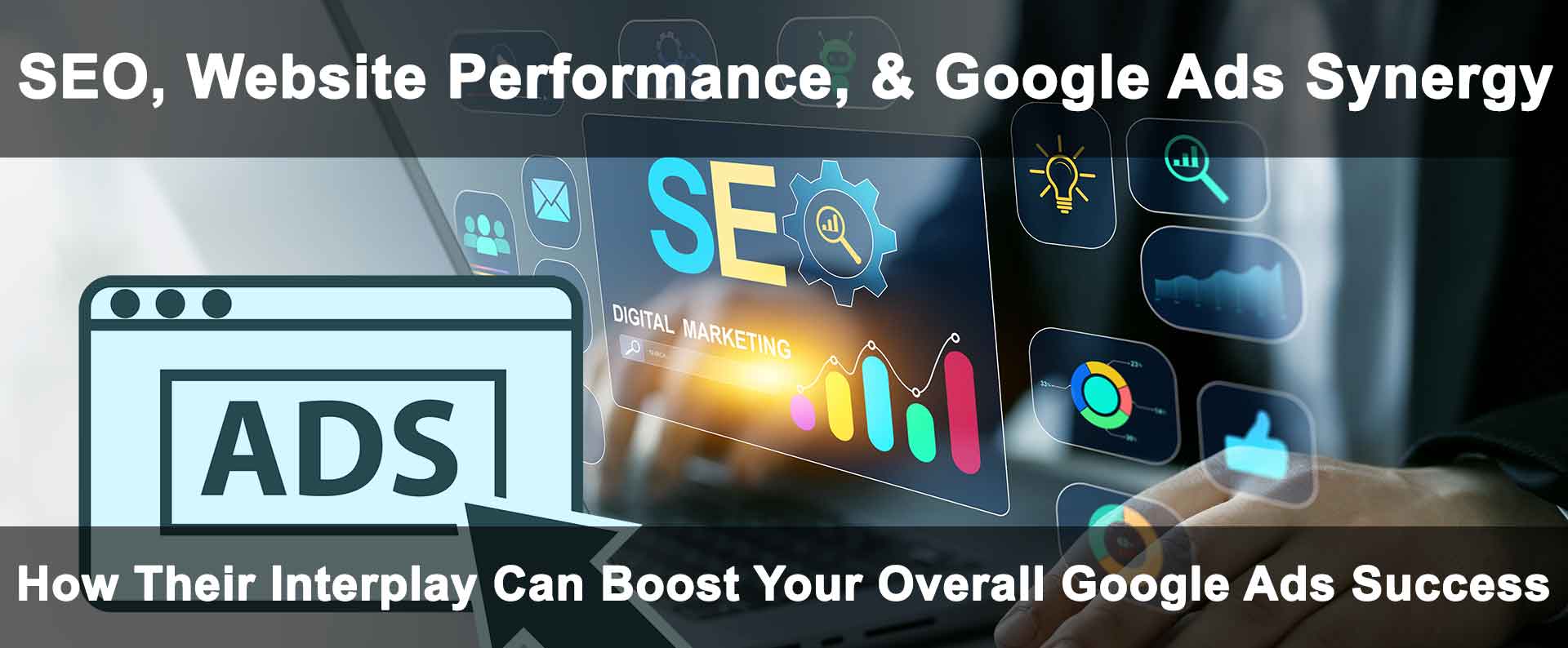As a small business owner, you likely understand the value of Google Ads in driving traffic and potential customers to your business. However, many might not realize that the success of your Google Ads campaign is closely interwoven with the overall search engine optimization (SEO) and performance of your website.
Even when your ad traffic is directed to a separate landing page, the way your website is optimized can significantly impact your Google Ads effectiveness.
Understanding this connection can help you maximize your advertising budget and improve your overall return on investment (ROI), while eliminating or reducing wasted spend.
The Importance of Quality Score
At the core of Google Ads success is an essential metric known as Quality Score. This score evaluates the relevance and quality of your ads, keywords, and landing pages.
A higher Quality Score often leads to better ad placements and lower costs per click (CPC). Your website's optimization and overall performance plays a vital role in determining this score.
Relevance & User Experience
Google examines the consistency between your ad copy, targeted keywords, and the content on your landing page. If your website is well-optimized with relevant content, fast loading times, and a seamless user experience, it can enhance your Quality Score, which contributes to more effective ad placements and reduced costs.
Example: Consider a local retail store that has optimized its website with detailed product descriptions and high-quality images. When running Google Ads for a seasonal sale, their strong SEO foundation will likely lead to lower CPCs and better ad visibility.
Building Brand Recognition
A robust online presence fueled by effective SEO not only enhances your website's credibility but also builds brand recognition. When potential customers repeatedly see your business in organic search results, it helps establish trust and familiarity, increasing the likelihood of them clicking on your ads.
Consistent Messaging
Maintaining a consistent message across your ads and website is critical. Discrepancies can confuse potential customers and lead to lost opportunities. Ensure that your Google Ads and landing pages cohesively communicate the same offers and information as your organic search content.
Example: A restaurant that appears consistently in organic searches for "best brunch spots" bolsters its credibility when running ads for a new brunch menu. Users who recognize the brand from organic results are more inclined to click on the ads.
Ensuring User Experience Consistency
A well-designed main website that offers an excellent user experience creates a seamless journey for visitors, even if they land on a separate page from your ads. If users have a positive experience on your main website, they are more likely to convert on your dedicated landing page.
Example: A health clinic with a user-friendly website will likely see higher conversions on a landing page promoting a new service. If the users find the main site's design clean and informative, they're more likely to trust the service being advertised.
Leveraging Keyword Research
Investing in SEO helps you uncover which keywords resonate most with your target audience. This insight can inform your Google Ads campaigns, enabling you to create compelling ad copy that resonates with potential customers.
Example: A professional services firm using keywords like "affordable accounting services" from their website's SEO can integrate these terms into their Google Ads. This strategy increases the chances of attracting the right audience and improves ad performance.
Enhancing Conversion Rates
The ultimate goal of any Google Ads campaign is to convert visitors into customers. If your website is not optimized for conversions, even the most strategic ads may fall short.
Elements such as meta tags, headers, and images should be optimized for relevant keywords to ensure your landing page is compelling enough to encourage action.
Critical Elements for Conversion
- Site Speed:
Faster loading pages lead to lower bounce rates. Ensure your landing pages are optimized for speed by compressing images and minimizing code.
- Mobile Responsiveness:
With the increasing trend of mobile browsing, having a mobile-optimized landing page is essential. Use responsive design to ensure accessibility across devices.
- Clear Calls-to-Action (CTAs):
Ensure that your landing page’s CTAs are visible, actionable, and aligned with the advertising message. Utilize A/B testing to find the most effective CTAs for your target audience.
Boosting Remarketing Potential
SEO can enhance your remarketing capabilities. If users first engage with your site through organic search, their prior interaction increases the chances of conversion when retargeted via Google Ads.
Example: A hospitality business that offers engaging blog content about local attractions can attract visitors organically. These visitors can then be retargeted with ads featuring special accommodation promotions, increasing the likelihood of conversions.
Important Considerations for Optimizing Landing Pages
While your website's SEO significantly affects your Google Ads campaigns, it's crucial to optimize the dedicated landing page itself. Ensure that it has relevant content, clear CTAs, and is aligned with the promise made in your ads.
Industry-Specific Strategies for Success
- Retail:
Focus on optimizing product descriptions and high-quality images. Run target campaigns based on seasonal trends highlighted in organic search analytics.
- Restaurants:
Utilize customer reviews and visually appealing menu items on your website. Use Google Ads for special events or new dishes, directing users to landing pages that facilitate online reservations.
- Hospitality:
Optimize your site using stunning visuals and guest testimonials. Promote package deals with Google Ads that link to landing pages highlighting unique offerings.
- Construction:
Showcase completed projects and customer testimonials. Use Google Ads to target homeowners seeking renovations, directing them to a landing page featuring your portfolio.
- Health/Medical:
Provide valuable health information online to establish authority. Use Google Ads for specific services, linking to landing pages with detailed descriptions for easy appointment booking.
- Professional Services:
Establish trust through well-written case studies and informative content. Use Google Ads to promote your niche expertise, ensure landing pages contain relevant information for potential clients.
The Wrap Up
The relationship between your website's SEO, performance, and the success of your Google Ads campaign is undeniable. By aligning these strategies, small business owners can enhance their ad performance, reduce costs, and build lasting credibility.
Treating SEO and Google Ads as complementary strategies will unlock your business's full potential in today's competitive digital marketplace. Investing in these elements today paves the way for more significant success and sustainable growth tomorrow.













